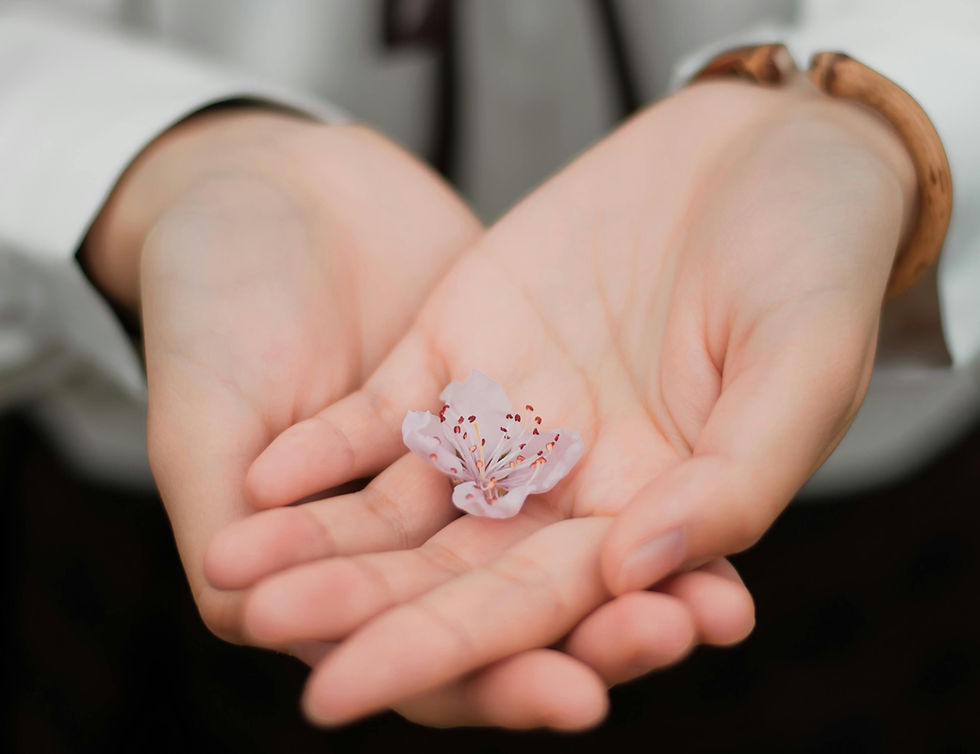The Benefits of Reiki for Managing Rheumatoid Arthritis
- Iliyana Petrova
- Oct 1, 2024
- 4 min read
Updated: Oct 17, 2024
Understanding Rheumatoid Arthritis
Rheumatoid Arthritis (RA) is a complex autoimmune disorder that affects millions of individuals worldwide. This condition not only causes joint stiffness, inflammation, and pain but also has systemic implications that can impact various organs in the body. The World Health Organization (WHO) reports that over 18 million people are currently living with RA, with approximately 41 out of every 100,000 individuals being diagnosed each year.
Living with RA can be incredibly challenging as the symptoms can vary in intensity and affect the ability to perform daily tasks. The chronic nature of the disease often leads individuals to seek long-term management strategies to alleviate pain and improve quality of life. While conventional medicine offers treatments such as disease-modifying antirheumatic drugs (DMARDs) and nonsteroidal anti-inflammatory drugs (NSAIDs) to manage symptoms, many patients explore alternative therapies to complement their treatment plan.
One such alternative therapy gaining popularity among RA patients is Reiki, a holistic healing technique that aims to promote relaxation and reduce stress. By channeling energy through touch, Reiki practitioners believe they can help restore balance and facilitate the body's natural healing process. While scientific evidence on the efficacy of Reiki in treating RA is limited, many individuals report feeling a sense of calm and improved well-being after sessions.
It is important for individuals living with RA to work closely with healthcare professionals to create a comprehensive treatment plan that addresses their unique needs and preferences. By combining conventional medicine with complementary therapies like Reiki, patients may find relief from symptoms and enhance their overall quality of life on their healing journey.
Rheumatoid Arthritis typically develops between the ages of 30 and 60, disproportionately affecting women—who are two to three times more likely to be diagnosed than men. In contrast, osteoarthritis is a degenerative joint disease commonly found in older adults. Both forms of arthritis can lead to long-term discomfort and worsen over time, characterized by joint stiffness and inflammation.
How Reiki Can Help
Reiki, a form of energy healing, offers several potential benefits for individuals managing rheumatoid arthritis and osteoarthritis:
1. Reduced Pain Sensations
One of the most significant challenges for arthritis patients is chronic pain, which can severely limit daily activities. Regular Reiki sessions have been reported to alleviate pain, allowing individuals to engage more fully in their lives. With reduced pain levels, many find they can decrease their reliance on pain medications, contributing to a better quality of life.
2. Improved Range of Motion
Joint stiffness is a common complaint among those with arthritis. Research suggests that Reiki may enhance range of motion, enabling individuals to move their joints more freely. Improved mobility can lead to increased participation in physical activities, which is essential for overall health.
3. Enhanced Mood
Chronic pain can take a toll on mental health, often leading to feelings of depression and anxiety. Studies indicate that Reiki may help alleviate these symptoms, providing emotional relief for those coping with the stresses of chronic illness. As mood improves, individuals may feel more empowered to manage their condition.
Supporting Research on Reiki and Arthritis
Several studies highlight the effectiveness of Reiki in managing arthritis symptoms:
University of Arizona Study: Researchers found that Reiki significantly improved the range of motion in individuals with limited shoulder mobility, showing an increase of 20 degrees compared to only 12 degrees for those receiving physical therapy.
Cross Cancer Institute Study: This study measured pain levels using visual analog and Likert scales, demonstrating that participants experienced a reduction in pain sensations following Reiki treatments.
University of Southern Maine Study: Findings from this research indicate that Reiki can effectively reduce symptoms of anxiety and depression, further supporting its role in holistic health.
In addition to these studies, many individuals with arthritis have reported positive outcomes from Reiki treatments. Participants often share experiences of decreased symptoms and an enhanced sense of balance and well-being, even while continuing to manage their condition.
Conclusion
As the prevalence of Rheumatoid Arthritis continues to rise, exploring complementary therapies like Reiki may offer individuals additional tools for managing their symptoms. While it is essential to maintain a comprehensive treatment plan that includes conventional medical approaches, integrating Reiki can provide significant benefits, enhancing physical, emotional, and spiritual well-being. If you or someone you know is struggling with arthritis, consider exploring Reiki as a potential path to improved quality of life.
References
World Health Organization (WHO). (2021). Rheumatoid Arthritis. Retrieved from WHO Website
National Institute of Arthritis and Musculoskeletal and Skin Diseases. (2020). Rheumatoid Arthritis. Retrieved from NIAMS
Kahn, J. (2017). The Role of Complementary Therapies in Managing Rheumatoid Arthritis: A Review of the Literature. Journal of Pain Management, 10(3), 165-172. doi:10.2147/JPM.S140502
University of Arizona. (2016). Effects of Reiki on Range of Motion in Patients with Limited Shoulder Mobility. Retrieved from Iniversity of Arizona Study
McManus, J. (2015). The Efficacy of Reiki in Reducing Pain and Anxiety. Cross Cancer Institute Study. Retrieved from Cross Cancer Institute
University of Southern Maine. (2019). Reiki as a Treatment for Anxiety and Depression: A Study. Journal of Holistic Nursing, 37(4), 388-397. doi:10.1177/0898010118794882
Alston, A. (2020). Anecdotal Evidence Supporting Reiki for Arthritis Relief. Integrative Medicine, 19(2), 98-101.

Comments